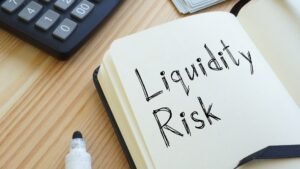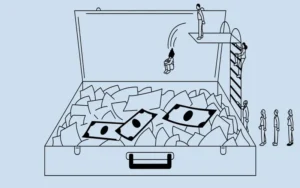What is land?
In the business sense, land can refer to real estate or property, sans buildings and equipment, designated by fixed spatial boundaries. Property ownership might offer the titleholder the right to any natural resources within their boundaries.
Traditional economics states that land is a factor in production, along with capital and labor—the transfer of land results in a capital gain or loss. Under Internal Revenue Service (IRS) tax statutes, land is not depreciable and qualifies as a fixed asset instead of a current asset.
Understanding Land In Terms of Production
The fundamental concept of land is that it is a specific piece of earth, a property with clearly delineated boundaries, that has an owner. You can view the concept of land differently, depending on its context and the circumstances under which it’s being analyzed.
In Economics
Legally and economically, a piece of land is a factor in some form of production. Although the land is not consumed during this production, no other production—food, for example—would be possible without it. Therefore, we may consider land as a resource with no cost of production. Even though people can permanently alter land use to be less or more profitable, we cannot increase its supply.
Characteristics of Land and Land Ownership
Land as a Natural Asset
Land can include anything that’s on the earth, which means that buildings, trees, and water that are part of the land are assets. Land incorporates all physical elements bestowed by nature on a specific area or piece of property—the environment, fields, forests, minerals, climate, animals, and bodies or water sources. Landowners may be entitled to many natural resources, including plants, human and animal life, soil, minerals, geographical location, electromagnetic features, and geophysical occurrences.
Because natural gas and hydrocarbons in the United States are being depleted, the land that contains these resources is of great value. In many cases, drilling and oil companies pay landowners substantial sums of money for the right to use their land to access such natural resources, mainly if the land is wealthy in a specific resource.
Among the Oldest Types of Collateral
Lenders are highly attracted to land because it is one of the earliest forms of collateral. But unlike a home or a vehicle, land cannot be moved, stolen, or destroyed. Air and space rights—above and below a property—are also included in the term “land.” However, the right to use the air and space above land may be subject to height limitations dictated by local ordinances and state and federal laws.
Investing in Land for Development
Land’s primary economic benefit is its scarcity. Many investors purchase land with the intent of developing it. Development can be for commercial or residential use and is subject to zoning ordinances and local regulations.
Investing in raw land can produce significant future cash flows that are simple to predict once secured, but developing land can be very costly and uncertain. The associated risks of developing land can originate from taxation, regulatory usage restrictions, leasing and selling a property, and even natural disasters.
What Is Land in Economics?
In economics, land is regarded as a factor of production, similar to labor, and as one of the crucial elements in creating goods and services. Land resources, specifically, are raw materials in production, such as trees, hydrocarbons, and metals.
Why is owning land important?
Owning land is essential because it is a source of wealth. Land can be harvested, and the materials grown on it can be sold for profit. Factories, warehouses, and buildings can be constructed on land to facilitate business. Land can be leased in return for income. Land is also a tangible commodity that does not depreciate. In addition, land cannot readily be tampered with because there is nothing to steal from it. It can be polluted, but that can also be prevented.
What are the primary uses of land?
The primary uses of land are transportation, residences, commercial production, agriculture, and recreation.
Conclusion
- When you talk about land, you can mean real estate or property with transparent borders.
- Land, along with capital and labor, is one of the main economic production factors.
- Land is essential, but if it has natural resources like oil and gas, it can become even more valuable.
- Investing in land for construction can be expensive and risky, but it can also be a way to make money and see its value increase.
- There are many ways to use land, including living, working, playing, farming, and getting around.













































